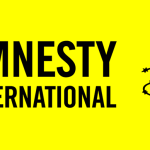Nigerian doctors based in the United States, United Kingdom, and Canada have outlined specific conditions under which they would consider returning to Nigeria, following the recent introduction of the National Policy on Health Workforce Migration. The policy, approved by President Bola Tinubu, aims to attract an estimated 12,400 Nigerian-trained doctors practicing abroad back to the country by offering incentives, including soft loans and grants for those interested in establishing private health facilities.
Despite these incentives, many doctors remain skeptical, citing the need for significant improvements in security, competitive welfare packages, infrastructure, and economic stability before they would consider returning.
Dr. Fikayo Benson, a medical doctor in the United States, emphasized that for him and his colleagues, the primary concerns are safety, adequate remuneration, and access to essential healthcare infrastructure. “If the Nigerian government can provide conditions comparable to what we have abroad, I would be among the first to return,” he said. Benson stressed that while financial incentives are important, the opportunity to make a meaningful impact on Nigeria’s healthcare system is also a significant motivating factor.
In the United Kingdom, Dr. Adefemi Adeoye echoed similar sentiments, noting that a safe and conducive working environment is crucial. He stated, “For any society to retain its workforce, they must be well-treated in terms of payment… Financial reward is significant in bringing people back.”
However, not all Nigerian doctors abroad are convinced. A female doctor in Coventry, UK, dismissed the idea of returning, citing deep concerns over the current state of affairs in Nigeria. “God forbid! Are you joking? I have not seen what will make me return, even if they give me N50 million per month,” she declared, pointing out that security concerns are paramount.
A Nigerian couple, both doctors based in Canada, expressed a similar reluctance to return. The husband, a dentist, highlighted the pervasive insecurity, poor economy, and widespread corruption as major deterrents. He questioned the long-term viability of the new policy, citing fears of political instability and policy reversals. “Wooing healthcare workers back to Nigeria is a tall order… Fixing the health sector is also about fixing Nigeria,” he said.
His wife, a veterinary doctor, pointed to the vast gap in medical practice between Canada and Nigeria, noting that even the most routine tasks performed by vet technicians in Canada are beyond the capabilities of most professors in Nigeria. She added, “If the Nigerian government is wooing doctors practicing abroad back, they have to consider not just the welfare of the doctors but the patients as well.”
Overall, while the National Policy on Health Workforce Migration is a step in the right direction, these doctors believe that much more needs to be done to address the systemic issues plaguing Nigeria’s healthcare sector before they would consider returning.




